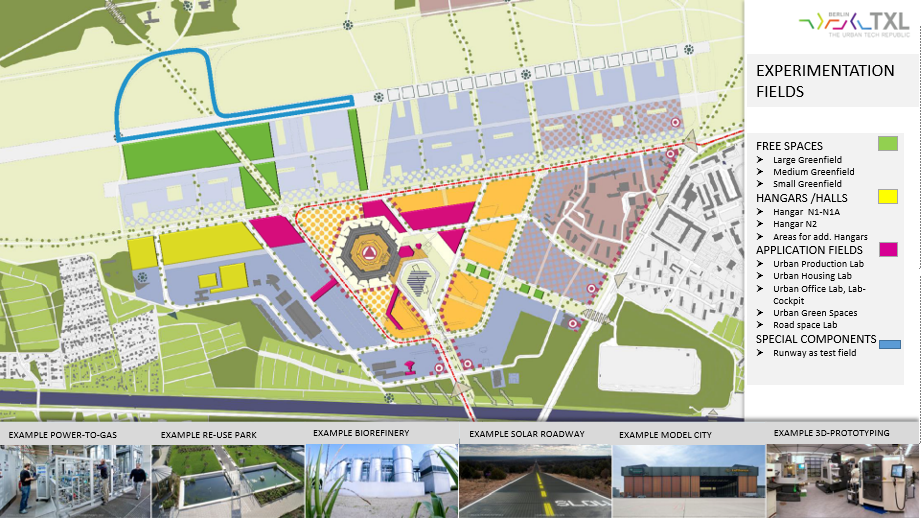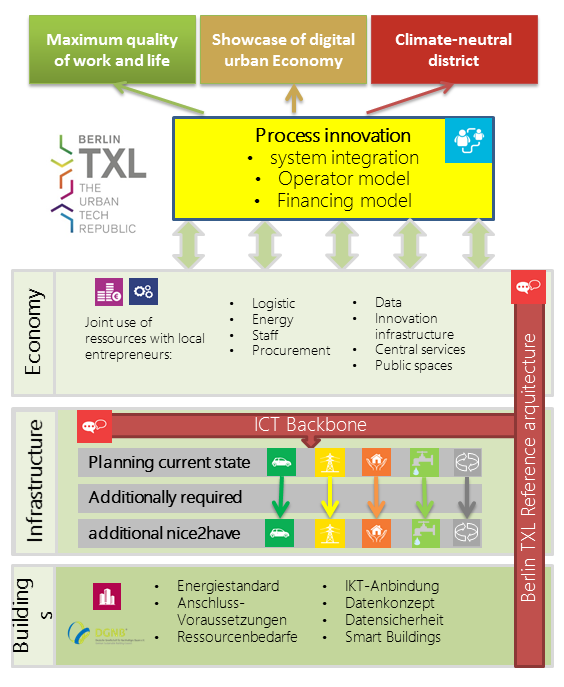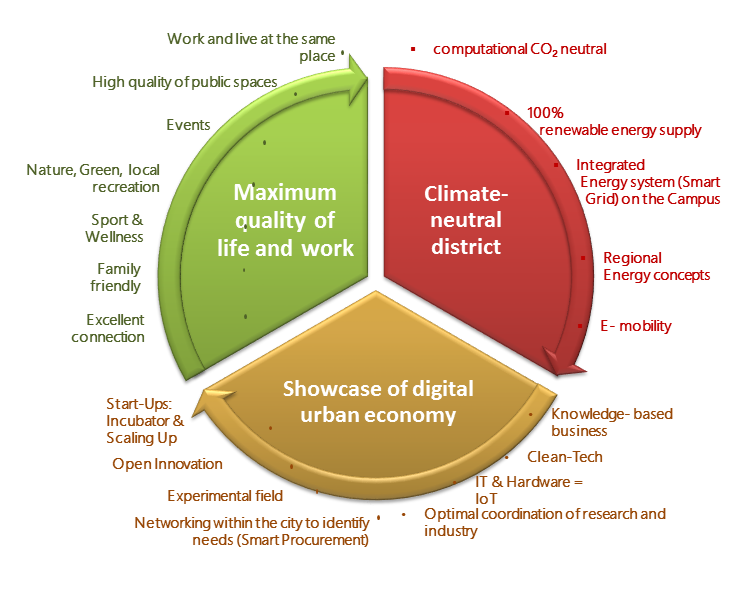
City Lab Berlin TXL

A living lab for the city of the future
A final closure date for the Berlin Tegel Airport is still not yet confirmed. The expected timeframe is 2018 or 2019, timetable has been postponed several times due to delays with the building of the new BER airport, giving the city plenty of time to decide how it can best use this opportunity. Once the airport does close, an area of 495 hectars close to the city centre will become available. After much deliberation involving many stakeholders, the city decided to convert the space to a research and industry park: the Berlin Urban Tech Republic (UTR). The members of the Fraunhofer initiative want to support the development of this international showcase for future urban system solutions as an interdisciplanary project and implement it together with political, industrial and financial stakeholders in order to develop the whole area step by step.
Plans for the former TXL area


Urban Planning for the former airport
In April of 2013, the Senate of the city of Berlin passed the official master concept TXL based on citizens‘ participation and several studies. In September of 2013 the Fraunhofer IAO conducted the study "Needs and potentials for experimental and demonstration areas: Berlin Urban Tech Republic“ for the Tegel Project GmbH. This aimed to demonstrate the potential for innovative urban development of the space besides jobs and housing creation, integrating especially experimental and demonstration fields for urban technologies into the whole concept.
The area can also provide support to local companies and start-ups as "living labs" in innovation cluster with the commercialized up-scaling of new infrastructures, products and solutions, securing a direct added-value for the long-term success of the location and its actors. In the space of the Berlin TXL you can look at the future. The development trends for the big innovation questions will be presented in innovation clusters and tested and reformed in reality.
The living lab concept combines the application research of the Fraunhofer society with a PR-suitable demonstration concept. New technologies, system solutions and close-to-market applied research are being combined in this area in order to explore the future of these technologies, particularly in the area of renewable energy.

City Lab within the Morgenstadt innovation network
The Fraunhofer society was an organisator of applied research to be integrated into the planning and the design of the concept of the UTR. Several possibilities and potentials for UTR have been demonstrated with feasibility studies and part concepts for special innovation fields.
Additionally, several other actors have developed innovative concepts for UTR. At the moment, the pathways in order to realize the vision of the UTR are clear. But there is a mismatch between the actual state of planning and the perception of the UTR. This could be demonstrated by several interviews led by the Fraunhofer IAO and IBP within the city lab.
The Fraunhofer IAO supports the Tegel Projekt GmbH within the Morgenstadt innovation network in formulating a vision and roadmap for the UTR. With this roadmap a structured communication should be established complemented by additional support for the implementation and suggestions for the detailed planning, financing and operation.